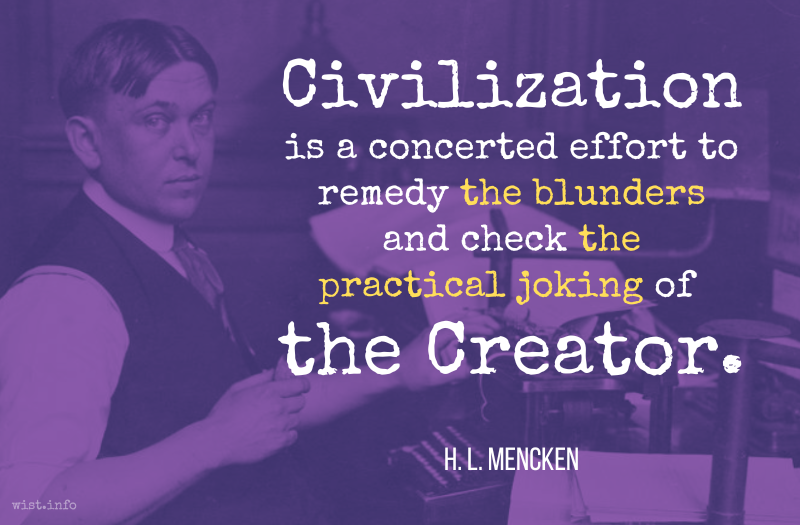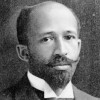Of course one does meet brilliant men, but they are isolated. The fashion nowadays is all for groups and societies of every sort. — It is always a sign of mediocrity in people when they herd together, whether their group loyalty is to Solovyev or to Kant or Marx. The truth is only sought by individuals, and they break with those who do not love it enough.
Boris Pasternak (1890-1960) Russian poet, novelist, and literary translator
Doctor Zhivago [До́ктор Жива́го], Part 1, ch. 1 “The Five-O’Clock Express,” sec. 4 [Nikolai Nikolaievich] (1955) [tr. Hayward & Harari (1958), UK ed.]
(Source)
Alternate translations:
Yes, there are gifted men, but the fashion nowadays is all for groups and societies of every sort. Gregariousness is always the refuge of mediocrities, whether they swear by Solovyiëv or Kant or Marx. Only individuals seek the truth, and they shun those whose sole concern is not the truth.
[tr. Hayward & Harari (1958), US ed.]
You come across talented people. But now various circles and associations are the fashion. Every herd is a refuge for giftlessness, whether it's a faith in Soloviev, or Kant, or Marx. Only the solitary seek the truth, and they break with all those who don't love it sufficiently.
[tr. Pevear & Volokhonsky (2010)]
Quotations about:
society
Note not all quotations have been tagged, so Search may find additional quotes on this topic.
The rationale that etiquette should be eschewed because it fosters inequality does not ring true in a society that openly admits to a feverish interest in the comparative status-conveying qualities of sneakers. Manners are available to all, for free.
Judith Martin (b. 1938) American author, journalist, etiquette expert [a.k.a. Miss Manners]
Common Courtesy, “On Etiquette as Language, Weapon, Custom, and Craft” (1985)
(Source)
The central task of education is to implant a will and facility for learning; it should produce not learned but learning people. The truly human society is a learning society, where grandparents, parents, and children are students together.
Eric Hoffer (1902-1983) American writer, philosopher, longshoreman
Reflections on the Human Condition, ch. 1, # 32 (1973)
(Source)
I am, somehow, less interested in the weight and convolutions of Einstein’s brain than in the near certainty that people of equal talent have lived and died in cotton fields and sweatshops.
Stephen Jay Gould (1941-2002) American paleontologist, geologist, biologist
The Panda’s Thumb, Part 4, ch. 13 “Wide Hats and Narrow Minds” (1980)
(Source)
Writing, printing, and the Internet give a false sense of security about the permanence of culture. Most of the million details of a complex, living culture are transmitted neither in writing nor pictorially. Instead, cultures live through word of mouth and example. That is why we have cooking classes and cooking demonstrations, as well as cookbooks. That is why we have apprenticeships, internships, student tours, and on-the-job training as well as manuals and textbooks. Every culture takes pains to educate its young so that they, in their turn, can practice and transmit it completely. Educators and mentors, whether they are parents, elders, or schoolmasters, use books and videos if they have them, but they also speak, and when they are most effective, as teachers, parents, or mentors, they also serve as examples.
Jane Jacobs (1916-2006) American-Canadian journalist, author, urban theorist, activist
Dark Age Ahead, ch. 1 “The Hazard” (2004)
(Source)
It may be that we have become so feckless as a people that we no longer care how things do work, but only what kind of quick, easy outer impression they give. If so, there is little hope for our cities or probably for much else in our society. But I do not think this is so.
Jane Jacobs (1916-2006) American-Canadian journalist, author, urban theorist, activist
The Death and Life of Great American Cities, Introduction (1961)
(Source)
You should swallow a toad every morning, when going out into high society, so as to encounter nothing more disgusting during the day.
[Faudrait avaler un crapaud tous les matins, pour ne trouver plus rien de dégoûtant le reste de la journée, quand on devait la passer dans le monde.]Nicolas Chamfort (1741-1794) French writer, epigrammist (b. Nicolas-Sébastien Roch)
Products of Perfected Civilization [Produits de la Civilisation Perfectionnée], Part 2 “Characters and Anecdotes [Caractères et Anecdotes],” ch. 5 (1795) [tr. Dusinberre (1992)]
(Source)
Though usually attributed directly to Chamfort, he credits the phrase to a M. de Lassay.
Fragment 863. (Source (French)). Alternate translations:
It would be necessary to swallow a toad every morning, in order not to find anything disgusting the rest of the day, when one has to spend it in the world.
[tr. Matthews (1877)]
One must swallow a toad every morning, when one has to go out in the world, so as not to find anything more disgusting during the day.
[tr. Merwin (1969)]
Swallow a toad in the morning and you will encounter nothing more disgusting the rest of the day.
[Source]
We may define all the essentials of politeness, but we cannot determine how and where they should be used; they depend on ordinary habits and customs, are connected with times and places, and are not the same in both sexes nor in different ranks of life; intelligence alone cannot find this out; politeness is acquired and perfected by imitation.
[L’on peut définir l’esprit de politesse, l’on ne peut en fixer la pratique: elle suit l’usage et les coutumes reçues; elle est attachée aux temps, aux lieux, aux personnes, et n’est point la même dans les deux sexes, ni dans les différentes conditions; l’esprit tout seul ne la fait pas deviner: il fait qu’on la suit par imitation, et que l’on s’y perfectionne.]Jean de La Bruyère (1645-1696) French essayist, moralist
The Characters [Les Caractères], ch. 5 “Of Society and Conversation [De la Société et de la Conversation],” § 32 (5.32) (1688) [tr. Van Laun (1885)]
(Source)
(Source (French)). Alternate translations:
We may define Politeness, tho we can't tell where to fix it in practice. It observes received Uses and Customs, 'tis bound to times and places, and is not the same thing in the two Sexes, or in different conditions. Wit alone cannot attain it: 'tis acquired and compleated by Imitation.
[Bullord ed. (1696)]
We may define Politeness, tho we can't tell where to fix it in Practice. It observes receiv'd Uses and Customs, is bound to Times and Places, and is nto the same thing in the two Sexes, or in different Conditions; Wit alone cannot attain it, 'tis acquir'd and brought to perfection by imitation.
[Curll ed. (1713)]
It is possible to define the spirit of politeness, but not to lay down rules for its practice: it depends on custom and convention; it is related to periods and places and people, and it is not the same for the two sexes nor for various social conditions; one cannot attain it through intelligence alone, yet intelligence can enable one to imitate it, and to acquire perfection in it.
[tr. Stewart (1970)]
And so when I hear so much impatient and irritable complaint, so much readiness to replace what we have by guardians for us all, those supermen, evoked somewhere from the clouds, whom none have seen and none are ready to name, I lapse into a dream, as it were. I see children playing on the grass; their voices are shrill and discordant as children’s are; they are restive and quarrelsome; they cannot agree to any common plan; their play annoys them; it goes poorly. And one says, let us make Jack the master; Jack knows all about it; Jack will tell us what each is to do and we shall all agree. But Jack is like all the rest; Helen is discontented with her part and Henry with his, and soon they fall again into their old state. No, the children must learn to play by themselves; there is no Jack the master. And in the end slowly and with infinite disappointment they do learn a little; they learn to forbear, to reckon with anther, accept a little where they wanted much, to live and let live, to yield when they must yield; perhaps, we may hope, not to take all they can. But the condition is that they shall be willing at least to listen to one another, to get the habit of pooling their wishes. Somehow or other they must do this, if the play is to go on; maybe it will not, but there is no Jack, in or out of the box, who can come to straighten the game.
Learned Hand (1872-1961) American jurist
“Democracy: Its Presumptions and Realities,” speech, Federal Bar Association, Washington, DC (1932-03-08)
(Source)
Collected in The Spirit of Liberty (1953).
The condition of our survival in any but the meagerest existence is our willingness to accommodate ourselves to the conflicting interests of others, to learn to live in a social world.
Learned Hand (1872-1961) American jurist
“To Yale Law Graduates,” speech, Yale Law School (1931-06-07)
(Source)
Collected in The Spirit of Liberty (1953).
Language both reflects and shapes society. Culture shapes language and then language shapes culture. Little wonder that the words we use to talk to each other, and about each other, are the most important words in our language: they tell us who I am, they tell us who you are, they tell us who “they” are.
Rosalie Maggio (1944-2021) American writer
Unspinning the Spin: The Women’s Media Center Guide to Fair and Accurate Language, “Writing Guidelines / Introduction” (2014)
(Source)
The first sentence (and much of the groundwork for the overall work) is included in her The Bias-Free Word Finder: A Dictionary of Non-Discriminatory Language, Introduction (1992).
The source link is to the web page that the WMC set up for the book.
I will apologise for many things that I have done, but I will not apologise for the things that should never be apologised for. It is a little theory of mine that has much exercised my mind lately, that most of the problems of this silly and delightful world derive from our apologising for those things which we ought not to apologise for, and failing to apologise for those things for which apology is necessary.
Stephen Fry (b. 1957) British actor, writer, comedian
Moab Is My Washpot, “Falling In,” ch. 3 (1997)
(Source)
Love, such as it exists in high society, is merely an exchange of whims and the contact of skins.
[L’amour, tel qu’il existe dans la société, n’est que l’échange de deux fantaisies et le contact de deux épidermes.]
Nicolas Chamfort (1741-1794) French writer, epigrammist (b. Nicolas-Sébastien Roch)
Products of Perfected Civilization [Produits de la Civilisation Perfectionée], Part 1 “Maxims and Thoughts [Maximes et Pensées],” ch. 6, ¶ 359 (1795) [tr. Dusinberre (1992)]
(Source)
(Source (French)). Alternate translations:
Love as it exists in society is nothing more than the exchange of two fancies and the contact of two epidermes.
[tr. Hutchinson (1902)]
Love, as it s practiced in Society, is nothing but the exchange of two caprices and the contact of two skins.
[tr. Mathers (1926)]
Love as it exists in society is merely the mingling of two fantasies and the contact of two skins.
[tr. Merwin (1969)]
Love as it exists in society is only the exchange of two fantasies and the contact of two epidermises.
[tr. Sinicalchi]
Physical scourges and the calamities of human nature rendered society necessary. Society has added to natural misfortunes. The drawbacks of society have made government necessary, and government adds to society’s misfortunes. There is the history of human nature in a nutshell.
[Les fléaux physiques, et les calamités de la nature humaine ont rendu la Société nécessaire. La Société a ajouté aux malheurs de la Nature. Les inconvéniens de la Société ont amené la nécessité du gouvernement, et le gouvernement ajoute aux malheurs de la Société. Voilà l’histoire de la nature humaine.]
Nicolas Chamfort (1741-1794) French writer, epigrammist (b. Nicolas-Sébastien Roch)
Products of Perfected Civilization [Produits de la Civilisation Perfectionée], Part 1 “Maxims and Thoughts [Maximes et Pensées],” ch. 1, ¶ 67 (1795) [tr. Hutchinson (1902)]
(Source)
(Source (French)). Alternate translations:
The physical plagues and misfortunes of human nature have made Society necessary. Society has added to the ills of Nature. The difficulties of Society have created the necessity for Government, and Government now adds to the evils of Society. There you have the history of man.
[tr. Mathers (1926)]
Physical disasters and the calamities of human nature have rendered society necessary. To the miseries of nature, society has added its own. The difficulties of society have evolved the necessity for government, and government has added to the miseries of society. This is the history of human nature.
[tr. Merwin (1969)]
Physical disasters and the calamities of human nature made society necessary. Society's ordeals were then added to those of nature. The drawbacks of society led to the need for government, whereupon the evils of government were added to those of society. Such is the history of human nature.
[tr. Dusinberre (1992)]
Physical plagues and the calamities of nature made society necessary. Society added to the misfortunes of nature. The inconveniences of society brought the necessity of government, and the government added to the misfortunes of society. This is the history of human nature.
[tr. Sinicalchi]
The art of the parenthesis is one of the great secrets of eloquence in society.
[L’art de la parenthèse est un des grands secrets de l’éloquence dans la Société.]
Nicolas Chamfort (1741-1794) French writer, epigrammist (b. Nicolas-Sébastien Roch)
Products of Perfected Civilization [Produits de la Civilisation Perfectionée], Part 1 “Maxims and Thoughts [Maximes et Pensées],” ch. 3, ¶ 243 (1795) [tr. Sinicalchi]
(Source)
(Source (French)). Alternate translations:
The art of the parenthesis is one of the great secrets of social eloquence.
[tr. Mathers (1926)]
The art of parenthesis is one of the great secrets of eloquence in society.
[tr. Merwin (1969)]
It is a truth universally acknowledged, that a single man in possession of a good fortune, must be in want of a wife. However little known the feelings or views of such a man may be on his first entering a neighbourhood, this truth is so well fixed in the minds of the surrounding families, that he is considered the rightful property of some one or other of their daughters.
“In society,” M… would say, “you have three sorts of friends: those who love you, those who couldn’t care less about you, and those who hate you.”
«Dans le monde, disait M…, vous avez trois sortes d’amis: vos amis qui vous aiment, vos amis qui ne se soucient pas de vous, et vos amis qui vous haïssent.»
Nicolas Chamfort (1741-1794) French writer, epigrammist (b. Nicolas-Sébastien Roch)
Products of Perfected Civilization [Produits de la Civilisation Perfectionnée], Part 2 “Characters and Anecdotes [Caractères et Anecdotes],” ch. 8 (1795) [tr. Parmée (2003), ¶343]
(Source)
(Source (French)). Alternate translations:
“In the world,” remarked some one to me, “you have three kinds of friends: the friends who love you, the friends who do not trouble their heads about you, and the friends who hate you.”
[tr. Hutchinson (1902)]
M— said, "In society you have three kinds of friends: your friends who are fond of you, your friends who don’t care either way, and your friends who detest you."
[tr. Merwin (1969)]
"In the world," said M..., you have three sorts of friends: the friends who love you; the friends who don't care about you, and the friends who hate you."
[tr. Pearson (1973)]
You have three sorts of friend in polite society, M— used to say. Friends who are fond of you; friends who are unconcerned about you; friends who detest you.
[tr. Dusinberre (1992)]
"There are three sorts of friends in high society," M— used to say. "Friends who are fond of you, friends who don't care about you, and friends who detest you."
[tr. Dusinberre (1992), "Sampler"]
Philosophy complains that Custom has hoodwinked us, from the first; that we do everything by Custom, even Believe by it; that our very Axioms, let us boast of Free-thinking as we may, are oftenest simply such Beliefs as we have never heard questioned. Nay, what is Philosophy throughout but a continual battle against Custom; an ever-renewed effort to transcend the sphere of blind Custom, and so become Transcendental?
Thomas Carlyle (1795-1881) Scottish essayist and historian
Sartor Resartus, Book 3, ch. 8 (1831)
(Source)
That society is badly arranged which forces nearly all women to be servants.
Henri Barbusse (1873-1935) French novelist, poet, journalist, activist
Light, ch. 23 (1919)
(Source)
Civilization is a concerted effort to remedy the blunders and check the practical joking of the Creator.
H. L. Mencken (1880-1956) American writer and journalist [Henry Lewis Mencken]
A Little Book in C Major, ch. 2, § 2 (1916)
(Source)
The surest safeguard against treason is a polity so just and equitable that no one will wish to betray it. Such an inspiration of men’s affection and men’s confidence is a more dependable guarantee of national security than the most searching catechism or the most diligent secret police. As we depart from this principle we confess our weakness, to our enemies as well as to ourselves. As we are faithful to it we realize our strength and show it to the world.
Whitney Griswold (1906–1963) American historian, educator [Alfred Whitney Griswold]
“Freedom, Security, and the University Tradition,” speech, Columbia University Bicentennial (1954-06-02)
(Source)
Reprinted in Griswold, In the University Tradition (1957).
If you want to go off by yourself and be a hermit, you can do whatever you want. But if you want interaction with other people, then by definition you have to buy into the social contract and restrain some of your behavior some of the time.
Judith Martin (b. 1938) American author, journalist, etiquette expert [a.k.a. Miss Manners]
“Polite Company,” interview by Hara Estroff Marano, Psychology Today (1998-03)
(Source)
Etiquette is about all of human social behavior. Behavior is regulated by law when etiquette breaks down or when the stakes are high — violations of life, limb, property, and so on. Barring that, etiquette is a little social contract we make that we well restrain some of our more provocative impulses in return for living more or less harmoniously in a community.
Judith Martin (b. 1938) American author, journalist, etiquette expert [a.k.a. Miss Manners]
“Polite Company,” interview by Hara Estroff Marano, Psychology Today (1998-03)
(Source)
How can a nation be called great if its bread tastes like Kleenex?
Julia Child (1912-2004) American chef and writer
(Misattributed)
(Source)
Not found in Child's works, it appears to have been coined by Joan Barthel in an article about Child: "How to Avoid TV Dinners While Watching TV," New York Times Magazine (1966-08-07):
"The French Chef" [...] educational TV's answer to underground movies and pop-op cults -- the program that can be campier than "Batman," farther-out than "Lost in Space" and more penetrating than "Meet the Press" as it probes the question: Can a Society be Great if its bread tastes like Kleenex?"
The article is quoted in Noël Riley Fitch, Appetite for Life: The Biography of Julia Child (1997).
Do you see the consequences of the way we have chosen to think about success? Because we so profoundly personalize success, we miss opportunities to lift others onto the top rung. […] We are too much in awe of those who succeed and far too dismissive of those who fail. And most of all, we become much too passive. We overlook just how large a role we all play — and by “we” I mean society — in determining who makes it and who doesn’t.
Malcolm Gladwell (b. 1963) Anglo-Canadian journalist, author, public speaker
Outliers: The Story of Success, Part 1, ch. 1 (2008)
(Source)
In the battle of existence, Talent is the punch; Tact is the clever footwork.
Wilson Mizner (1876-1933) American screenwriter and wit
In Edward Dean Sullivan, The Fabulous Wilson Mizner (1935)
(Source)
There was a time when all these things would have passed me by, like the flitting figures of a theatre, sufficient for the amusement of an hour. But now, I have lost the power of looking merely on the surface. Everything seems to me to come from the Infinite, to be filled with the Infinite, to be tending toward the Infinite. Do I see crowds of men hastening to extinguish a fire? I see not merely uncouth garbs, and fantastic, flickering lights, of lurid hue, like a trampling troop of gnomes — but straightway my mind is filled with thoughts about mutual helpfulness, human sympathy, the common bond of brotherhood, and the mysteriously deep foundations on which society rests; or rather, on which it now reels and totters.
Lydia Maria Child (1802-1880) American abolitionist, activist, journalist, suffragist
Letters from New-York, # 1, 1841-08-19 (1843)
(Source)
Two conditions are essential to the realization of justice according to law. The law must have an authority supreme over the will of the individual, and such an authority can arise only from a background of social acquiescence, which gives it the voice of indefinitely greater numbers than those of its expositors. Thus, the law surpasses the deliverances of even the most exalted of its prophets; the momentum of its composite will alone makes it effective to coerce the individual and reconciles him to his subserviency. The pious traditionalism of the law has its roots in a sound conviction of this necessity; it must be content to lag behind the best inspiration of its time until it feels behind it the weight of such general acceptance as will give sanction to its pretension to unquestioned dictation.
Learned Hand (1872-1961) American jurist
“The Speech of Justice,” Harvard Law Review (1916-04)
(Source)
Collected in The Spirit of Liberty (1953).
One of the most disconcerting things about infants is that they only smile when they are pleased. They stare at visitors with round grave eyes, and when the visitors try to amuse them, they display astonishment at the foolish antics of adults. But as soon as possible, their parents teach them to seem pleased by the company of people to whom they are utterly indifferent.
Bertrand Russell (1872-1970) English mathematician and philosopher
“On smiling,” New York American (1932-08-17)
(Source)
There are no exact directions. There are probably no directions at all. The only things that I am able to recommend at this moment are: a sense of humour; an ability to see the ridiculous and the absurd dimensions of things; an ability to laugh about others as well as about ourselves; a sense of irony; and, of everything that invites parody in this world. In other words: rising above things, or looking at them from a distance; sensibility to the hidden presence of all the more dangerous types of conceit in others, as well as in ourselves; good cheer; an unostentatious certainty of the meaning of things; gratitude for the gift of life and courage to assume responsibility for it; and, a vigilant mind.
Václav Havel (1936-2011) Czech playwright, essayist, dissident, politician
Speech, accepting the “Open Society” Prize, Central European University (24 Jun 1999)
(Source)
For Justice is one; it binds all human society, and is based on one Law, which is right reason applied to command and prohibition. Whoever knows not this Law, whether it has been recorded in writing anywhere or not, is without Justice.
[Est enim unum ius quo deuincta est hominum societas et quod lex constituit una, quae lex est recta ratio imperandi atque prohibendi. Quam qui ignorat, is est iniustus, siue est illa scripta uspiam siue nusquam.]
Marcus Tullius Cicero (106-43 BC) Roman orator, statesman, philosopher
De Legibus [On the Laws], Book 1, ch. 15 (1.15) / sec. 42 [Marcus] (c. 51 BC) [tr. Keyes (1928)]
(Source)
(Source (Latin)). Alternate translations:
There can be but one essential justice, which cements society, and one law which establishes this justice. This law is right reason, which is the true rule of all commandments and prohibitions. Whoever neglects this law, whether written or unwritten, is necessarily unjust and wicked.
[tr. Barham (1842)]
For there is but one essential justice which cements society, and one law which establishes this justice. This law is right reason, which is the true rule of all commandments and prohibitions. Whoever neglects this law, whether written or unwritten, is necessarily unjust and wicked.
[tr. Barham/Yonge (1878)]
There is one, single, justice. It binds together human society and has been established by one, single, law. That law is right reason in commanding and forbidding. A man who does not acknowledge this law is unjust, whether it has been written down anywhere or not.
[tr. Rudd (1998)]
There is only one justice, which constitutes the bond among humans, and which was established by the one law, which is right reason in commands and prohibitions. The person who does not know it is unjust, whether the law has been written anywhere or not.
[tr. Zetzel (1999)]
Right is uniform; human fellowship has been bound by it, and one law has established it; that law is correct reason in commanding and prohibiting. He who is ignorant of it is unjust, whether it has been written somewhere or nowhere.
[tr. Fott (2013)]
When the judgment day comes, civilization will have an alibi: “I never took a human life, I only sold the fellow the gun to take it with.”
Our Constitution relies on our electorate’s complete ideological freedom to nourish independent and responsible intelligence and preserve our democracy from that submissiveness, timidity and herd-mindedness of the masses which would foster a tyranny of mediocrity.
Robert H. Jackson (1892-1954) US Supreme Court Justice (1941-54), lawyer, jurist, politician
American Communications Assn. v. Douds, 339 U.S. 382, 442 (1950) [concurrence and dissent]
(Source)
Our legislators are not sufficiently apprised of the rightful limits of their powers: that their true office is to declare and enforce only our natural rights and duties, & to take none of them from us. No man has a natural right to commit aggression on the equal rights of another; and this is all from which the laws ought to restrain him: every man is under the natural duty of contributing to the necessities of the society; and this is all the laws should enforce on him.
Thomas Jefferson (1743-1826) American political philosopher, polymath, statesman, US President (1801-09)
Letter to Francis W. Gilmer (7 Jun 1816)
(Source)
But remember, that manners must adorn knowledge, and smooth its way through the world. Like a great rough diamond, it may do very well in a closet by way of curiosity, and also for its intrinsic value; but it will never be worn, nor shine, if it is not polished.
Lord Chesterfield (1694-1773) English statesman, wit [Philip Dormer Stanhope]
Letter to his son, #155 (1 Jul 1748)
(Source)
No society, certainly not a large and heterogeneous one, can fail in time to explode if it is deprived of the arts of compromise, if it knows no way of muddling through. No good society can be unprincipled; and no viable society can be principle-ridden.
Alexander M. Bickel (1924-1974) Romanian-American law professor, constitutional scholar
The Least Dangerous Branch, ch. 2 (1962)
(Source)
It is lack of confidence, more than anything else, that kills a civilization. We can destroy ourselves by cynicism and disillusion, just as effectively as by bombs.
Kenneth Clark (1903-1983) British art historian, museum director, broadcaster
Civilization: A Personal View, ch. 13 “Heroic Materialism” (1969)
(Source)
Genocide is natural! Rape is natural! No, what’s natural is not necessarily good — often it’s repulsive. One of the most important functions of human society, and the driving force behind most political institutions, is to prevent humans from doing what comes naturally.
Jared Diamond (b. 1937) American geographer, historian, ornithologist, author
“Choosing Success,” interview by Catherine Seip, National Review (30 Jun 2006)
(Source)
Tolerance and apathy are the last virtues of a dying society.
Aristotle (384-322 BC) Greek philosopher
(Spurious)
Not found in the writings of Aristotle, or, with variation, anywhere early than the 19th Century. More discussion of this quotation's origins and misuses:
Besides justifying the transfer of wealth to kleptocrats, institutionalized religion brings two other important benefits to centralized societies. First, shared ideology or religion helps solve the problem of how unrelated individuals are able to live together without killing each other — by providing them with a bond not based on kinship. Second, it gives people a motive, other than genetic self-interest, for sacrificing their lives on behalf of others.
Jared Diamond (b. 1937) American geographer, historian, ornithologist, author
Guns, Germs, and Steel, ch. 14 (1997)
(Source)
I think that the successful genres of a particular period are reflections of the needs and thoughts and social struggles of that time. When you see a bunch of similar projects meeting with success, you’ve found a place in the social landscape where a particular story (or moral or scenario) speaks to readers. You’ve found a place where the things that stories offer are most needed. And since the thing that stories most often offer is comfort, you’ve found someplace rich with anxiety and uncertainty. (That’s what I meant when I said to Melinda Snodgrass that genre is where fears pool.)
Daniel Abraham (b. 1969) American writer [pseud. James S. A. Corey (with Ty Franck), M. L. N. Hanover]
“100 Aspects of Genre: Learning from the Dead and the Dying,” blog entry (19 Oct 2010)
(Source)
Why weren’t these problems obvious to the Maya kings, who could surely see their forests vanishing and their hills becoming eroded? Part of the reason was that the kings were able to insulate themselves from problems afflicting the rest of society. By extracting wealth from commoners, they could remain well fed while everyone else was slowly starving. What’s more, the kings were occupied with their own power struggles. They had to concentrate on fighting one another and keeping up their images through ostentatious displays of wealth. By insulating themselves in the short run from the problems of society, the elite merely bought themselves the privilege of being among the last to starve.
Jared Diamond (b. 1937) American geographer, historian, ornithologist, author
“The Ends of the World as We Know Them,” New York Times (1 Jan 2005)
(Source)
American society has always exercised a stronger pressure on individual behavior than Western European societies; but in time of war this pressure is notched a few degrees, and starts to become quite alarming.
Tzvetan Todorov (1939-2017) Bulgarian-French historian, philosopher, literary critic, sociologist
The New World Disorder: Reflections of a European, ch. 3 (2005)
(Source)
Democracy can buckle when we give in to fear. So, just as we, as citizens, must remain vigilant against external aggression, we must guard against a weakening of the values that make us who we are.
Barack Obama (b. 1961) American politician, US President (2009-2017)
“Farewell Address,” Chicago (10 Jan 2017)
(Source)
The societies to which most readers of this book belong represent a narrow slice of human cultural diversity. Societies from that slice achieved world dominance not because of a general superiority, but for specific reasons: their technological, political, and military advantages derived from their early origins of agriculture, due in turn to their productive local wild domesticable plant and animal species. Despite those particular advantages, modern industrial societies didn’t also develop superior approaches to raising children, treating the elderly, settling disputes, avoiding non-communicable diseases, and other societal problems. Thousands of traditional societies developed a wide array of different approaches to those problems.
Jared Diamond (b. 1937) American geographer, historian, ornithologist, author
The World Until Yesterday: What Can We Learn from Traditional Societies?, Epilogue (2012)
(Source)
In fact, one of the main lesson to be learned from the collapses of the Maya, Anasazi, Easter Islanders, and those other past societies (as well as from the recent collapse of the Soviet Union) is that a society’s steep decline may begin only a decade or two after the society reaches its peak numbers, wealth, and power. […] The reason is simple: maximum population, wealth, resource consumption, and waste production mean maximum environmental impact, approaching the limit where impact outstrips resources. On reflection, it’s no surprise that declines of societies tend to follow swiftly on their peaks.
Jared Diamond (b. 1937) American geographer, historian, ornithologist, author
Collapse: How Societies Choose to Fail or Succeed, Part 4, ch. 16 (2005)
(Source)
For that is an absurd position which is taken by some people, who say that they will not rob a parent or a brother for their own gain, but that their relation to the rest of their fellow-citizens is quite another thing. Such people contend in essence that they are bound to their fellow-citizens by no mutual obligations, social ties, or common interests. This attitude demolishes the whole structure of civil society.
[Nam illud quidem absurdum est, quod quidam dicunt, parenti se aut fratri nihil detracturos sui commodi causa, aliam rationem esse civium reliquorum. Hi sibi nihil iuris, nullam societatem communis utilitatis causa statuunt esse cum civibus, quae sententia omnem societatem distrahit civitatis.]
Marcus Tullius Cicero (106-43 BC) Roman orator, statesman, philosopher
De Officiis [On Duties; On Moral Duty; The Offices], Book 3, ch. 6 (3.6) / sec. 28 (44 BC) [tr. Miller (1913)]
(Source)
(Source (Latin)). Alternate translation:
For as to what is usually said by some men, that they would not take anything away from a father or brother for their own advantage, but that there is not the same reason for their ordinary citizens, it is foolish and absurd: for they thrust themselves out from partaking of any privileges, and from joining in common with the rest of their citizens, for the public good; an opinion that strikes at the very root and foundation of all civil societies.
[tr. Cockman (1699)]
That indeed is absurd, which some men avow, that for their own advantage they would take nothing from a parent or a brother; but that the case of other citizens is different. These men, stablish with their fellow-citizens no common right, no society for common advantage; an opinion that unhinges the whole internal intercourse of a state.
[tr. McCartney (1798)]
For that which some say, that they would take nothing wrongfully, for the sake of their own advantage, from a parent or brother, but that the case is different with other citizens, is indeed absurd. These establish the principle that they have nothing in the way of right, no society with their fellow citizens, for the sake fo the common interest -- an option which tears asunder the whole social compact.
[tr. Edmonds (1865)]
For this is absurd indeed which some say, that they would take nothing from a parent or a brother for their own benefit, but that it is quite another thing with persons outside of one’s own family. These men disclaim all mutual right and partnership with their fellow-citizens for the common benefit, -- a state of feeling which dismembers the fellowship of the community.
[tr. Peabody (1883)]
It is absurd for people to say that they will not despoil a father or a brother for their own advantage but that fellow-citizens stand on quite a different footing. That is practically to assert that they are bound to their fellow-citizens neither by mutual obligations, social ties, nor common interests. But such a theory tears in pieces the whole fabric of civil society.
[tr. Gardiner (1899)]
The contention that some people advance is absurd, of course: they argue that they would not deprive a parent or brother of anything for their own advantage but that there is another standard applicable to all other citizens. These people do not submit themselves to any law or to any obligation to cooperate with fellow citizens for the common benefit. Their attitude destroys any cooperation within the city.
[tr. Edinger (1974)]
We should measure the prosperity of a nation not by the number of millionaires, but by the absence of poverty, the prevalence of health, the efficiency of the public schools, and the number of people who can and do read worthwhile books.
W. E. B. Du Bois (1868-1963) American writer, historian, social reformer [William Edward Burghardt Du Bois]
“On the Future of the American Negro,” speech (Mar 1953)
(Source)
Any social organization does well enough if it isn’t rigid. The framework doesn’t matter as long as there is enough looseness to permit that one man in a multitude to display his genius. Most so-called social scientists seem to think that organization is everything. It is almost nothing — except when it is a straitjacket. It is the incidence of heroes that counts, not the pattern of zeros.
No human society is too primitive to have some kind of literature. The only thing is that primitive literature hasn’t yet become distinguished from other aspects of life: it’s still embedded in religion, magic and social ceremonies.
Northrop Frye (1912-1991) Canadian literary critic and literary theorist
The Educated Imagination, Talk 2 “The Singing School” (1963)
(Source)
Sick cultures show a complex of symptoms such as you have named … but a dying culture invariably exhibits personal rudeness. Bad manners. Lack of consideration for others in minor matters. A loss of politeness, of gentle manners, is more significant than is a riot.
One person by himself is not a complete human being.
Northrop Frye (1912-1991) Canadian literary critic and literary theorist
The Educated Imagination, Talk 1 “The Motive for Metaphor” (1963)
(Source)
If I let myself believe anything on insufficient evidence, there may be no great harm done by the mere belief; it may be true after all, or I may never have occasion to exhibit it in outward acts. But I cannot help doing this great wrong towards Man, that I make myself credulous. The danger to society is not merely that it should believe wrong things, though that is great enough; but that it should become credulous, and lose the habit of testing things and inquiring into them; for then it must sink back into savagery.
William Kingdon Clifford (1845-1879) English mathematician and philosopher
“The Ethics of Belief,” Part 1 “The Duty of Inquiry,” Lecture, London (11 Apr 1876)
(Source)








































